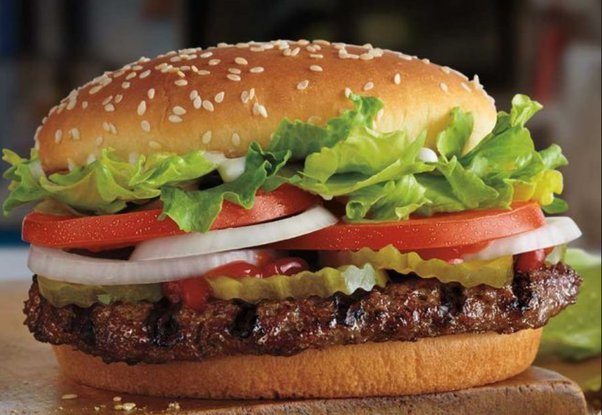Burger King Discontinues Whopper Sales: What Led to the Decision?
Unexpectedly, Burger King has announced that it will no longer be selling its iconic Whopper. Both industry analysts and fans of fast food have expressed a great deal of interest in and conjecture about this move. Let's investigate the possible causes of this unanticipated turn of events.

1: Changing Consumer Preferences:
As time has gone on, consumers' tastes have shifted in favor of more sustainably produced and healthier food options. Due to its oversized size and decadent contents, the Whopper may no longer be as popular among health-conscious diners looking for lighter options. Burger King may be reviewing their menu in reaction to this trend in order to accommodate customers' shifting nutritional choices.
2: Increasing Competition:
As new companies enter the market and established chains continually innovate to draw in customers, the fast food industry has grown more competitive. Burger King might have made the decision to discontinue the Whopper in an effort to make place for new offerings or set itself apart from rival businesses. Burger King wants to stay current and draw in more customers by changing up its menu.
3: Supply Chain Challenges:
These could be another component in the decision-making process. Global supply chains have been upset by the COVID-19 pandemic, which has caused shortages and logistical problems for numerous businesses, including the foodservice sector. Burger King may have had trouble finding the ingredients needed to make the Whopper on a large scale, which led to the item's temporary or permanent discontinuation.
4: Environmental Concerns:
The effects of meat production and consumption on the environment have come to light more and more in recent years. The main component of the Whopper, beef, has a high carbon footprint and requires a lot of resources to produce. Burger King may be giving up on the Whopper in favor of plant-based substitutes or menu items with less of an impact on the environment in response to consumer demand for more environmentally friendly eating options.
5: Strategic Business choice:
In the end, Burger King may have made the choice to retire the Whopper as a part of a bigger strategic strategy to maximize operating efficiency, simplify its menu, or restore its reputation. Burger King has the chance to create excitement, get media attention, and increase foot traffic to its locations by discontinuing a popular sandwich just in time for customers to savor it one final time.
.jpeg)
Although many people may not have anticipated Burger King to stop selling the Whopper, this news highlights how dynamic the fast food sector is and how businesses must adjust to shifting consumer tastes, shifting market dynamics, and sustainability concerns. It remains to be seen if Burger King's audacious decision will be rewarded or met with resistance from ardent devotees of the renowned burger.